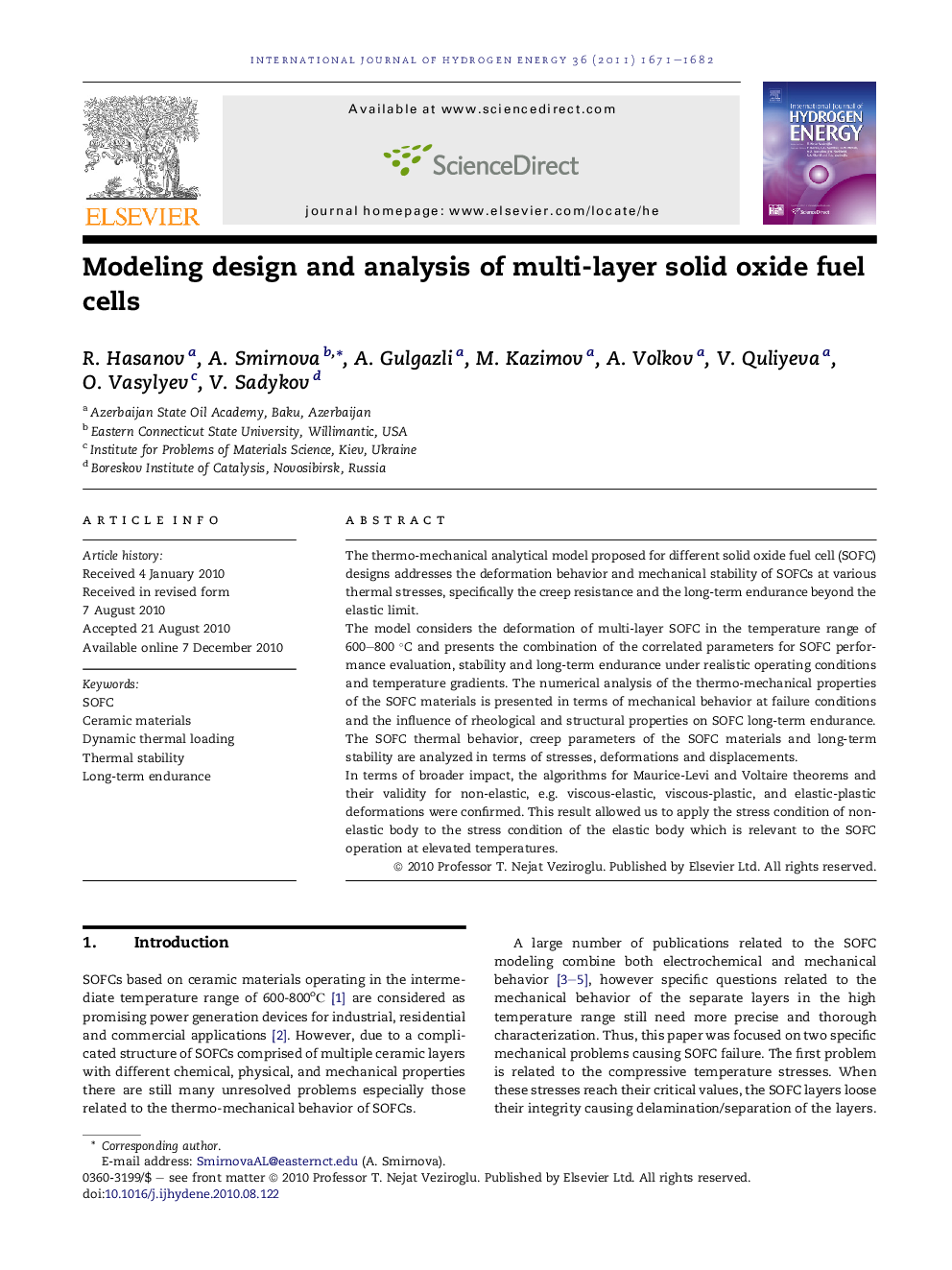| Article ID | Journal | Published Year | Pages | File Type |
|---|---|---|---|---|
| 1272334 | International Journal of Hydrogen Energy | 2011 | 12 Pages |
The thermo-mechanical analytical model proposed for different solid oxide fuel cell (SOFC) designs addresses the deformation behavior and mechanical stability of SOFCs at various thermal stresses, specifically the creep resistance and the long-term endurance beyond the elastic limit.The model considers the deformation of multi-layer SOFC in the temperature range of 600–800 °C and presents the combination of the correlated parameters for SOFC performance evaluation, stability and long-term endurance under realistic operating conditions and temperature gradients. The numerical analysis of the thermo-mechanical properties of the SOFC materials is presented in terms of mechanical behavior at failure conditions and the influence of rheological and structural properties on SOFC long-term endurance. The SOFC thermal behavior, creep parameters of the SOFC materials and long-term stability are analyzed in terms of stresses, deformations and displacements.In terms of broader impact, the algorithms for Maurice-Levi and Voltaire theorems and their validity for non-elastic, e.g. viscous-elastic, viscous-plastic, and elastic-plastic deformations were confirmed. This result allowed us to apply the stress condition of non-elastic body to the stress condition of the elastic body which is relevant to the SOFC operation at elevated temperatures.
